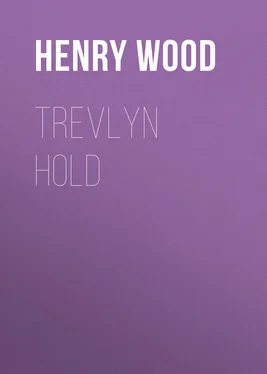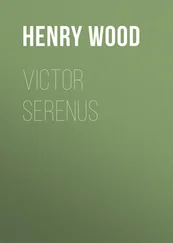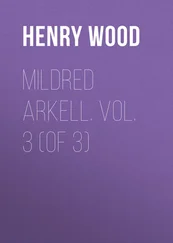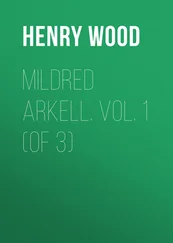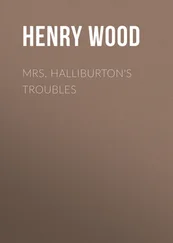Henry Wood - Trevlyn Hold
Здесь есть возможность читать онлайн «Henry Wood - Trevlyn Hold» — ознакомительный отрывок электронной книги совершенно бесплатно, а после прочтения отрывка купить полную версию. В некоторых случаях можно слушать аудио, скачать через торрент в формате fb2 и присутствует краткое содержание. Жанр: foreign_prose, literature_19, foreign_antique, на английском языке. Описание произведения, (предисловие) а так же отзывы посетителей доступны на портале библиотеки ЛибКат.
- Название:Trevlyn Hold
- Автор:
- Жанр:
- Год:неизвестен
- ISBN:нет данных
- Рейтинг книги:4 / 5. Голосов: 1
-
Избранное:Добавить в избранное
- Отзывы:
-
Ваша оценка:
- 80
- 1
- 2
- 3
- 4
- 5
Trevlyn Hold: краткое содержание, описание и аннотация
Предлагаем к чтению аннотацию, описание, краткое содержание или предисловие (зависит от того, что написал сам автор книги «Trevlyn Hold»). Если вы не нашли необходимую информацию о книге — напишите в комментариях, мы постараемся отыскать её.
Trevlyn Hold — читать онлайн ознакомительный отрывок
Ниже представлен текст книги, разбитый по страницам. Система сохранения места последней прочитанной страницы, позволяет с удобством читать онлайн бесплатно книгу «Trevlyn Hold», без необходимости каждый раз заново искать на чём Вы остановились. Поставьте закладку, и сможете в любой момент перейти на страницу, на которой закончили чтение.
Интервал:
Закладка:
Soon after the marriage, Parson Berkeley died—to the intense grief of his daughter, Mrs. Ryle. He was succeeded in the curacy and parsonage by a young clergyman just in priest's orders, the Reverend Shafto Dean. A well-meaning man, but opinionated and self-sufficient in the highest degree, and before he had been one month at the parsonage, he and Squire Trevlyn were at issue. Mr. Dean wished to introduce certain new fashions and customs into the church and parish; Squire Trevlyn held to the old. Proud, haughty, overbearing, but honourable and generous, Squire Trevlyn had known no master, no opposer; he was lord of the neighbourhood, and was bowed down to accordingly. Mr. Dean would not give way, the Squire would not give way; and the little seed of dissension grew and spread. Obstinacy begets obstinacy. That which a slight yielding on either side, a little mutual good-feeling, might have removed at first, became at length a terrible breach, the talk of a county.
Meanwhile Thomas Ryle's fair young wife died, leaving an infant boy—George. In spite of her husband's loving care, in spite of having been shielded from all work and management, so necessary on a farm, she died. Nora Dickson, a humble relative of the Ryle family, who had been partially brought up on the farm, was housekeeper and manager. She saved all trouble to young Mrs. Ryle: but she could not save her life.
The past history of Trevlyn Hold was a romance in itself. Squire Trevlyn had five children: Rupert, Maude, Joseph, Edith and Diana. Rupert, Maude and Diana were imperious as their father; Joseph and Edith were mild, yielding, and gentle, as had been their mother. Rupert was of course regarded as the heir: but the property was not entailed. An ancestor of Squire Trevlyn's coming from some distant part—it was said Cornwall—bought it and settled down upon it. There was not a great deal of grass land on the estate, but the coal-mines in the distance made it very valuable. Of all his children, Rupert, the eldest, was the Squire's favourite: but poor Rupert did not live to come into the estate. He had inherited the fits of passion characteristic of the Trevlyns; was of a thoughtless, impetuous nature; and he fell into trouble and ran away from his country. He embarked for a distant port, which he did not live to reach. And Joseph became the heir.
Very different, he, from his brother Rupert. Gentle and yielding, like his sister Edith, the Squire half despised him. The Squire would have preferred him passionate, haughty, and overbearing—a true Trevlyn. But the Squire had no intention of superseding him in the succession of Trevlyn Hold. Provided Joseph lived, none other would be its inheritor. Provided . Joseph—always called Joe—appeared to have inherited his mother's constitution; and she had died early, of decline.
Yielding, however, as Joe Trevlyn was naturally, on one point he did not prove himself so—that of his marriage. He chose Emily Dean; the pretty and lovable sister of Squire Trevlyn's bête noire , the obstinate parson. "I would rather you took a wife out of the parish workhouse, Joe," the Squire said, in his anger. Joe said little in reply, but he held to his choice; and one fine morning the marriage was celebrated by the obstinate parson himself in the church at Barbrook.
The Squire and Thomas Ryle were close friends, and the former was fond of passing his evenings at the farm. The farm was not a productive one. The land, never of the richest, had become poorer and poorer: it wanted draining and nursing; it wanted, in short, money laid out upon it; and that money Mr. Ryle did not possess. "I shall have to leave it, and try and take a farm in better condition," he said at length to the Squire.
The Squire, with all his faults and his overbearing temper, was generous and considerate. He knew what the land wanted; money spent on it; he knew Mr. Ryle had not the money to spend, and he offered to lend it him. Mr. Ryle accepted it, to the amount of two thousand pounds. He gave a bond for the sum, and the Squire on his part promised to renew the lease upon the present terms, when the time of renewal came, and not raise the rent. This promise was not given in writing: but none ever doubted the word of Squire Trevlyn.
The first of Squire Trevlyn's children to marry had been Edith: some years before she had married Mr. Chattaway. The two next to marry had been Maude and Joseph. Joseph, as you have heard, married Emily Dean; Maude, the eldest daughter, became the second wife of Mr. Ryle. A twelvemonth after the death of his fair young wife Mary, Miss Trevlyn of the Hold stepped into her shoes, and became the step-mother of the little child, George. The youngest daughter Diana, never married.
Miss Trevlyn, in marrying Thomas Ryle, gave mortal offence to some of her kindred. The Squire himself would have forgiven it; nay, perhaps have grown to like it—for he never could do otherwise than like Thomas Ryle—but he was constantly incited against it by his family. Mr. Chattaway, who had no great means of living of his own, was at the Hold on a long, long visit, with his wife and two little children, Christopher and Octavia. They were always saying they must leave; but they did not leave; they stayed on. Mr. Chattaway made himself useful to the Squire on business matters, and whether they ever would leave was a question. She, Mrs. Chattaway, was too gentle-spirited and loving to speak against her sister and Mr. Ryle; but Chattaway and Miss Diana Trevlyn kept up the ball. In point of fact, they had a motive—at least, Chattaway had—for making permanent the estrangement between the Squire and Mr. Ryle, for it was thought that Squire Trevlyn would have to look out for another heir.
News had come home of poor Joe Trevlyn's failing health. He had taken up his abode in the south of France on his marriage: for even then the doctors had begun to say that a more genial climate than this could alone save the life of the heir to Trevlyn. Bitterly as the Squire had felt the marriage, angry as he had been with Joe, he had never had the remotest thought of disinheriting him. He was the only son left: and Squire Trevlyn would never, if he could help it, bequeath Trevlyn Hold to a woman. A little girl, Maude, was born in due time to Joe Trevlyn and his wife; and not long after this, there arrived the tidings that Joe's health was rapidly failing. Mr. Chattaway, selfish, mean, sly, covetous, began to entertain hopes that he should be named the heir; he began to work on it in stealthy determination. He did not forget that, were it bequeathed to the husband of one of the daughters, Mr. Ryle, as the husband of the eldest, might be considered to possess most claim to it. No wonder then that he did all he could, secretly and openly, to incite the Squire against Mr. Ryle and his wife. And in this he was joined by Miss Diana Trevlyn. She, haughty and imperious, resented the marriage of her sister with one of inferior position, and willingly espoused the cause of Mr. Chattaway as against Thomas Ryle. It was whispered about, none knew with what truth, that Miss Diana made a compact with Chattaway, to the effect that she should reign jointly at Trevlyn Hold with him and enjoy part of its revenues, if he came into the inheritance.
Before the news came of Joe Trevlyn's death—and it was some months in coming—Squire Trevlyn had taken to his bed. Never did man seem to fade so rapidly as the Squire. Not only his health, but his mind failed him; all its vigour seemed gone. He mourned poor Joe excessively. In rude health and strength, he would not have mourned him; at least, would not have shown that he did so; never a man less inclined than the Squire to allow his private emotions to be seen: but in his weakened state he gave way to lamentation for his heir (his heir , note you, more than his son) every hour in the day. Over and over again he regretted that the little child, Maude, left by Joe, was not a boy. Nay, had it not been for his prejudice against her mother, he would have willed the estate to her, girl though she was. Now was Mr. Chattaway's time: he put forth in glowing colours his own claims, as Edith's husband; he made golden promises; he persuaded the poor Squire, in his wrecked mind, that black was white—and his plans succeeded.
Читать дальшеИнтервал:
Закладка:
Похожие книги на «Trevlyn Hold»
Представляем Вашему вниманию похожие книги на «Trevlyn Hold» списком для выбора. Мы отобрали схожую по названию и смыслу литературу в надежде предоставить читателям больше вариантов отыскать новые, интересные, ещё непрочитанные произведения.
Обсуждение, отзывы о книге «Trevlyn Hold» и просто собственные мнения читателей. Оставьте ваши комментарии, напишите, что Вы думаете о произведении, его смысле или главных героях. Укажите что конкретно понравилось, а что нет, и почему Вы так считаете.
